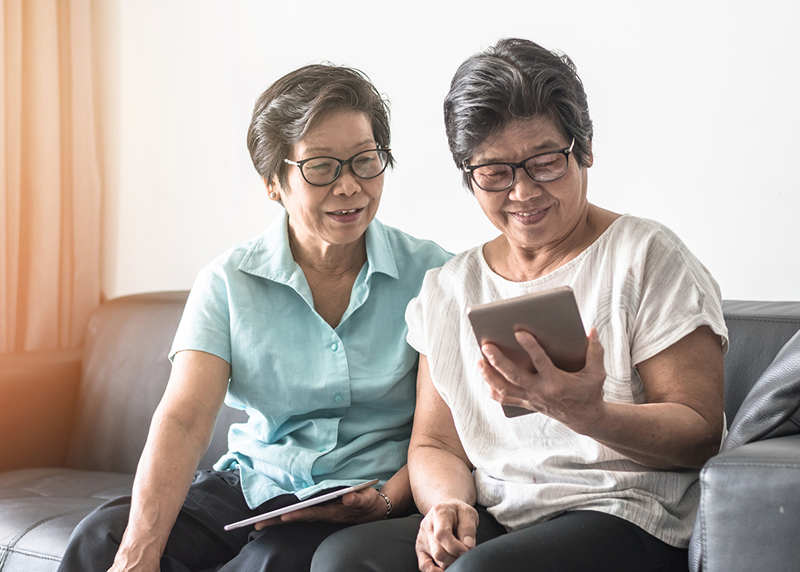In the United States, I have witnessed firsthand the challenges faced by Asian patients from diverse linguistic backgrounds.
Having spent the first half of my life in South Korea and the second half in the United States, I possess a unique perspective on the health care experiences of Asian immigrants. Beginning in elementary school, I regularly accompanied my Korean-speaking parents to medical appointments, treatment sessions, and community resource centers. Each experience deepened my understanding of the importance of cultural diversity and competency within health care settings.
Although access to various resources often provided a sense of inclusion for my parents, there were times in which they encountered a lack of support tailored to their specific diagnosis or circumstances in their native language. For instance, there were occasions when my parents were referred to a specific clinic, only to find no Korean interpreter or health care professional available to assist them. Moreover, they often received important documents—such as physical exam reports, referrals, and treatment plans—without any accompanying communication from the health care professional, making it challenging for them to fully comprehend their diagnosis or treatment.
This language barrier underscores the critical need for culturally sensitive and linguistically appropriate resources, especially within health care settings. With May being Asian American and Pacific Islander Heritage Month, I’m excited to explore the crucial topic of accessibility and cultural awareness for Asian individuals with aphasia.
Under the guidance of Dr. Jiyeon Lee, a respected researcher and professor at Purdue University, I have been delving into the available resources in the United States that are specifically tailored for Korean-speaking individuals with aphasia. The objective has been twofold: (1) to explore the existing resources and (2) to establish a community in order to bridge the gap.
How Aphasia Affects Asian Adults
In the United States, stroke rates remain high among Asian adults, with around 361 of every 1,000 individuals affected—according to Centers for Disease Control & Prevention (CDC) data from 2018. This statistic highlights the critical need for accessible resources and support within the Asian community.
A common effect of strokes is aphasia, an acquired language disorder that affects a person’s ability to speak, understand, read, and write. The nature of aphasia can make it difficult for individuals to engage in everyday conversations, express their thoughts and feelings, and participate in social activities.
Research has shown that because of these communication challenges, aphasia can have a significant negative impact on a person’s quality of life. Studies have also shown, for those from racial and ethnic underrepresented backgrounds, quality of life is further diminished by the fact that culturally and linguistically appropriate resources are extremely limited.
Creating the Korean Aphasia Community (KAC)
The number of speech-language pathologists (SLPs) available to support the Asian community is disproportionately low. As of 2023, only about 2.8% of certified SLPs in the United States identified as Asian, based on statistics from the American Speech-Language-Hearing Association (ASHA).
According to the Profile of ASHA Multilingual Service Providers, Year-End 2023 [PDF], only 216 of 18,875 ASHA multilingual service providers self-identified as Korean-speaking multilingual clinicians. This shortage represents obstacles for Korean-speaking individuals with aphasia who need assistance and resources—emphasizing the necessity for initiatives that directly address this gap.
Through the Purdue Aphasia Lab, Dr. Lee and I created the Korean Aphasia Community (KAC) in January 2024 to address this significant issue, collaborating with other Korean-speaking clinicians. KAC is a community dedicated to increasing accessibility, diversity, and awareness within the Asian community in the discipline of communication sciences and disorders.
Through virtual meetings, KAC offers monthly group sessions led by licensed SLPs and SLP graduate students who are fluent in Korean. Each group session is
- tailored to the cultural and linguistic needs of Korean-speaking individuals with aphasia and
- designed to cultivate a supportive, inclusive space where the members can actively engage and benefit from the group.
KAC’s goal is to provide beneficial resources to Korean-speaking individuals who are navigating difficulties associated with aphasia. KAC welcomes all Korean-speaking individuals with aphasia, regardless of their location worldwide. Currently, people from the United States, South Korea, Canada, and China have joined the community. The first meeting will be held in May 2024.
Visit the Korean Aphasia Community website to learn more.

